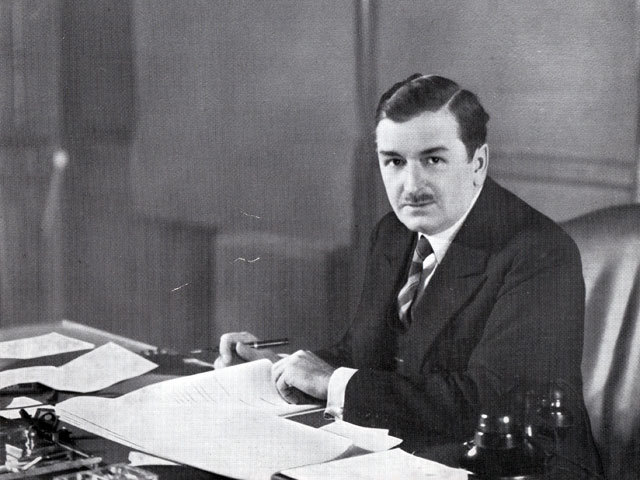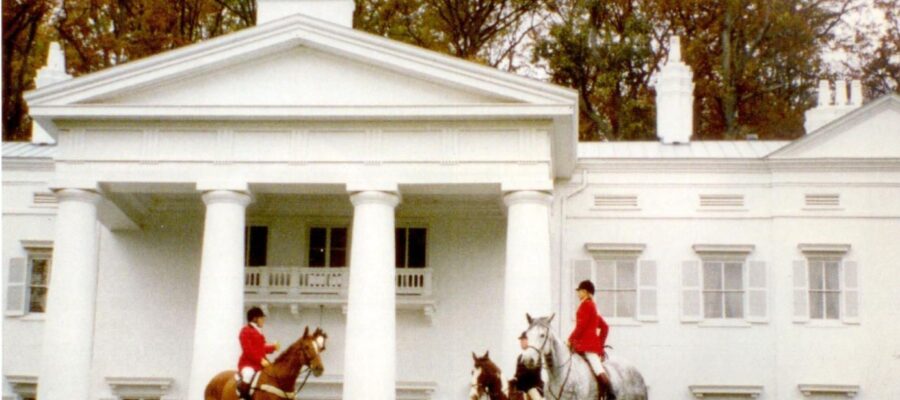Dixians are unique among the other ethnicities of the American Empire in that we, and we alone, can claim a legacy of actual conservatism. By “actual conservatism,” I mean the conservatism of the old European variety, one of a hierarchical, ordered society run by a landed aristocracy and explicitly Christian. For the rest of the United States, no such legacy exists and all they are left with is, at best, various shades of rightwing liberalism masquerading as “conservatism.” This is why, and to this day, the conservatism of an Alabamian and a New Yorker will likely come in two very distinct flavors. It is, ultimately, two differing societies. This does lead to the question of whether or not this historic European-style conservatism – or Toryism – will save Dixie. Sadly, the answer is no, regardless of my personal affinity for Toryism.
The most obvious example as to why a nation’s historical predisposition to Toryism cannot save it against the ravages of modernity is Europe itself. For centuries, Toryism was slowly built, drawing upon the legacies of Greece and Rome, of Christianity, and of the actions of men like Charlemagne. Today, it can be called the authentic Western Right. Unfortunately, almost all of that is gone. Almost every single nation in Europe, save for countries like Poland and Hungary (which are largely reacting against historical communist tyranny), are far worse off than the U.S. Slowly but surely, a New Right is rising in most of Europe, one that looks to Europe’s history to find her renewal. But even if they are successful, they still have a momentous task before them.
The amount of social degradation that has befallen Europe is remarkable. Ultimately, World War I and World War II cast very long shadows over any discussion on the sad status of modern Europe. Remember, two consecutive generations of young men were annihilated in devastating wars. That is punishing for any civilization to overcome, but Europe also suffered the additional tragedy of the loss of faith in their own civilization, something that is even more damaging than the great loss of life. The acceptance of “white guilt” (or colonial guilt) can be laid at the feet of this loss of faith. It is difficult to find an event in history that was this brutal to Dixie as the World Wars were for Europe. For all the loss of life we suffered in the War Between the States, we only lost one generation, not two in a row. More importantly, Dixians still maintained faith in their civilization after the War. Europeans did not.
I do not think the most pertinent example of historical Toryism failing to save a nation can be found in Europe, but rather Canada. As odd as it is to hear today, throughout most of the histories of both countries, Canada was to the right of the United States. Recall the founding stock of Canada – French Catholics who were horrified by the French Revolution and American loyalists that settled in Canada after the American Revolution. Both groups were Tory to their core. According to the Italian historian Raimondo Luraghi in his book The Rise and Fall of the Plantation South, Canada (namely Quebec) shared with Dixie and much of the New World a common seigneurial heritage. Seigneuialism is a land-based economic system very much like feudalism, albeit with more capitalistic characteristics. According to Luraghi, it was the liberal-capitalist New England and the Middle Colonies (New Jersey, Pennsylvania, and New York) that were the outliers. They, however, would go on to conquer the rest of the Americas, both militarily and ideologically, and bring it all under liberal-capitalist rule. Through sheer tenacity and will, much of the seigneurial world was able to preserve some aspects of their old system, but Yankee influence was well established.
As for Canada, the nation really began to change in the 1960s. Secularization hit hard and Canada began to look away from its historic British orientation (even the Quebecois identified with the UK, as they had no love for the French Republic) and moved towards an American (read Eternal Yankee) one, as seen when the Red Ensign was replaced with the current Maple Leaf design for the national flag. Today, despite the nature of its founding stock and most of its history, Canada is well to the left of the U.S. on almost every issue. And not just Dixie either, even outside of Dixie, the U.S. is still comparatively conservative next to Canada. A centuries old trend had been reversed in less than 50 years.
But even more troubling as far as Dixie is concerned, is one of the reasons for Canada’s dramatic political transformation – Quebec. Throughout most of its history, Quebec was the most rightwing province in Canada and one of the most conservative places in North America. It was known as “France without the Revolution”- a backwater full of religious fanatics and superstition. This was particularly pronounced during the 1930s through the 1950s, when Maurice Duplessis served as Premier of Quebec. Duplessis, a staunch anti-communist, championed rural areas and traditional Quebecois values during an era known decisively as Le Grande Noirceur (The Great Darkness) to modern liberals. Seeing the political battle over Quebec’s future in religious terms, he even used “Le ciel est bleu; l’enfer est rouge”- heaven is blue, hell is red – as a campaign slogan; blue being the color of Duplessis’s rightwing Union Nationale Party and with red being the color of the rival Liberal Party.

For around 130 years after the French Revolution, Quebec kept alive pre-Revolutionary France. Today, that is gone save for a few members in rural Quebec. What was once the most rightwing province in Canada has been dragging Canada, as a whole, leftward since the 1960s. There is no guarantee that this cannot happen to Dixie. If you are too young to remember the 1990s, or possibly the 2000s, then you are too young to remember a Dixie that was unafraid to celebrate the Confederacy, much less being Southern and politically conservative. For the sake of making this easy, let’s generously say that the last of these people were born in the year 2000. They are old enough to drink now and the next generation coming up has been taught to associate the Confederacy with the likes of Dylann Roof or fantastical notions that the Confederacy genocided black people. As time progresses, Southern Toryism dies with each subsequent generation.
None of this is to disparage Dixie’s historical Toryism. I love it. It is part of our culture and why we have been able to hold out for as long as we have against the rot of modernity. But, it cannot save Dixie, just as it could not save Quebec. Ultimately, only men of a country can preserve Toryism in a country. That is why a vibrant Dixian Nationalist movement is so critical. It is not merely important as it works towards Dixian independence, which I see as the only viable path in which Dixie can preserve her culture, but also in how it works to build Dixian identity, giving us the tools to recognize Dixian conservatism and Dixian society as anchored to its historic Toryism. Otherwise, much like the rest of the U.S., all we’re left with is some variety of (relatively) rightwing liberalism.
-By Harmonica

O I’m a good old rebel, now that’s just what I am. For this “fair land of freedom” I do not care at all. I’m glad I fit against it, I only wish we’d won, And I don’t want no pardon for anything I done.





